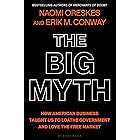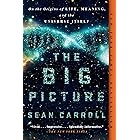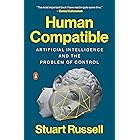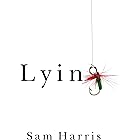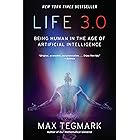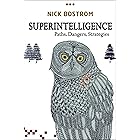| Digital List Price: | $15.20 |
| Kindle Price: | $9.99 Save $5.21 (34%) |
| Sold by: | Amazon.com Services LLC |
Your Memberships & Subscriptions

Download the free Kindle app and start reading Kindle books instantly on your smartphone, tablet, or computer - no Kindle device required.
Read instantly on your browser with Kindle for Web.
Using your mobile phone camera - scan the code below and download the Kindle app.

OK
 Audible sample Sample
Audible sample Sample 


Merchants of Doubt: How a Handful of Scientists Obscured the Truth on Issues from Tobacco Smoke to Global Warming Kindle Edition
Merchants of Doubt tells the story of how a loose-knit group of high-level scientists and scientific advisers, with deep connections in politics and industry, ran effective campaigns to mislead the public and deny well-established scientific knowledge over four decades. Remarkably, the same individuals surface repeatedly-some of the same figures who have claimed that the science of global warming is "not settled" denied the truth of studies linking smoking to lung cancer, coal smoke to acid rain, and CFCs to the ozone hole. "Doubt is our product," wrote one tobacco executive. These "experts" supplied it.
Naomi Oreskes and Erik M. Conway, historians of science, roll back the rug on this dark corner of the American scientific community, showing how ideology and corporate interests, aided by a too-compliant media, have skewed public understanding of some of the most pressing issues of our era.
- LanguageEnglish
- PublisherBloomsbury Press
- Publication dateJune 3, 2010
- File size2634 KB
Customers who bought this item also bought
From the Publisher
|
|
|
|
|---|---|---|
|
|
|
|
Editorial Reviews
From Publishers Weekly
Copyright © Reed Business Information, a division of Reed Elsevier Inc. All rights reserved.
Review
“Anyone concerned about the state of democracy in America should read this book” ―Al Gore
“A fascinating account of a very thorny problem” ―Bill McKibben
“Merchants of Doubt should finally put to rest the question of whether the science of climate change is settled. It is, and we ignore this message at our peril” ―Elizabeth Kolbert
"If you read just one book on climate change this year, read Merchants of Doubt. And if you have time to read two, reread Merchants of Doubt." - Grist
"Brilliantly reported and written with brutal clarity . . . Oreskes and Conway do a great public service." - The Huffington Post
"A powerful dissection of how right wing think tanks and private corporations sow doubt on scientific consensus to block action on critical climate and public health issues." - Tom Steyer, via Twitter
"An important book . . . The next time a friend or Fox News commentator or political candidate assaults you with the claim that 'climate change isn't happening' or 'isn't caused by human activities,' you will recognize the source of their colossal misunderstanding." - Star Tribune (Minneapolis-St. Paul)
"It is tempting to require that all those engaged in the business of conveying scientific information to the general public should read it." - Science
About the Author
Naomi Oreskes is a professor of the history of science and affiliated professor of Earth and planetary sciences at Harvard University. Her study “Beyond the Ivory Tower,” published in Science in 2004, was a milestone in the fight against global warming denial and was cited by Al Gore in An Inconvenient Truth. Her books include Why Trust Science? and Science on a Mission: How Military Funding Shaped What We Do and Don’t Know about the Ocean.
Erik M. Conway has published five previous books, including Atmospheric Science at NASA: A History and Exploration and Engineering: The Jet Propulsion Laboratory and the Quest for Mars. Merchants of Doubt was their first book together. In 2014, they published The Collapse of Western Civilization: A View from the Future, and they are currently working on The Magic of the Marketplace: The True History of a False Idea.
Excerpt. © Reprinted by permission. All rights reserved.
Merchants of Doubt
How a Handful of Scientists Obscured the Truth on Issues from Tobacco Smoke to Global WarmingBy NAOMI ORESKES ERIK M. CONWAYBloomsbury Press
Copyright © 2010 Naomi Oreskes and Erik M. ConwayAll right reserved.
ISBN: 978-1-59691-610-4
Contents
Introduction................................................................................................11. Doubt Is Our Product.....................................................................................102. Strategic Defense, Phony Facts, and the Creation of the George C. Marshall Institute.....................363. Sowing the Seeds of Doubt: Acid Rain.....................................................................664. Constructing a Counternarrative: The Fight over the Ozone Hole...........................................1075. What's Bad Science? Who Decides? The Fight over Secondhand Smoke.........................................1366. The Denial of Global Warming.............................................................................1697. Denial Rides Again: The Revisionist Attack on Rachel Carson..............................................216Conclusion: Of Free Speech and Free Markets.................................................................240Epilogue: A New View of Science.............................................................................266Acknowledgments.............................................................................................275Permissions.................................................................................................277Notes.......................................................................................................279Index.......................................................................................................345Introduction
Ben Santer is the kind of guy you could never imagine anyone attacking. He's thoroughly moderate-of moderate height and build, of moderate temperament, of moderate political persuasions. He is also very modest-soft-spoken, almost self-effacing-and from the small size and non ex is tent dcor of his office at the Lawrence Livermore National Laboratory, you might think he was an accountant. If you met him in a room with a lot of other people, you might not even notice him.But Santer is no accountant, and the world has noticed him.
He's one of the world's most distinguished scientists-the recipient of a 1998 MacArthur "genius" award and numerous prizes and distinctions from his employer-the U.S. Department of Energy-because he has done more than just about anyone to prove the human causes of global warming. Ever since his graduate work in the mid-1980s, he has been trying to understand how the Earth's climate works, and whether we can say for sure that human activities are changing it. He has shown that the answer to that question is yes.
Santer is an atmospheric scientist at the Lawrence Livermore National Laboratory's Model Diagnosis and Intercomparison Project, an enormous international project to store the results of climate models from around the globe, distribute them to other researchers, and compare the models, both with real- world data and with each other. Over the past twenty years, he and his colleagues have shown that our planet is warming-and in just the way you would expect if green house gases were the cause.
Santer's work is called "fingerprinting"-because natural climate variation leaves different patterns and traces than warming caused by green house gases. Santer looks for these fingerprints. The most important one involves two parts of our atmosphere: the troposphere, the warm blanket closest to the Earth's surface, and the stratosphere, the thinner, colder part above it. Physics tells us that if the Sun were causing global warming-as some skeptics continue to insist-we'd expect both the troposphere and the stratosphere to warm, as heat comes into the atmosphere from outer space. But if the warming is caused by green house gases emitted at the surface and largely trapped in the lower atmosphere, then we expect the troposphere to warm, but the stratosphere to cool.
Santer and his colleagues have shown that the troposphere is warming and the stratosphere is cooling. In fact, because the boundary between these two atmospheric layers is in part defined by temperature, that boundary is now moving upward. In other words, the whole structure of our atmosphere is changing. These results are impossible to explain if the Sun were the culprit. It shows that the changes we are seeing in our climate are not natural.
The distinction between the troposphere and the stratosphere became part of the Supreme Court hearing in the case of Massachusetts et al. v. the EPA, in which twelve states sued the federal government for failing to regulate carbon dioxide as a pollutant under the Clean Air Act. Justice Antonin Scalia dissented, arguing that there was nothing in the law to require the EPA to act-but the honorable justice also got lost in the science, at one point referring to the stratosphere when he meant the troposphere. A lawyer for Massachusetts replied, "Respectfully, Your Honor. It is not the stratosphere. It's the troposphere." The justice answered, "Troposphere, what ever. I told you before I'm not a scientist. That's why I don't want to deal with global warming."
But we all have to deal with global warming, whether we like it or not, and some people have been resisting this conclusion for a long time. In fact, some people have been attacking not just the message, but the messenger. Ever since scientists first began to explain the evidence that our climate was warming-and that human activities were probably to blame-people have been questioning the data, doubting the evidence, and attacking the scientists who collect and explain it. And no one has been more brutally-or more unfairly-attacked than Ben Santer.
The Intergovernmental Panel on Climate Change (IPCC) is the world's leading authority on climate issues. Established in 1988 by the World Meteorological Organization and the United Nations Environment Program, it was created in response to early warnings about global warming. Scientists had known for a long time that increased green house gases from burning fossil fuels could cause climate change-they had explained this to Lyndon Johnson in 1965-but most thought that changes were far off in the future. It wasn't until the 1980s that scientists started to worry-to think that the future was perhaps almost here-and a few mavericks began to argue that anthropogenic climate change was actually already under way. So the IPCC was created to evaluate the evidence and consider what the impacts would be if the mavericks were right.
In 1995, the IPCC declared that the human impact on climate was now "discernible." This wasn't just a few individuals; by 1995 the IPCC had grown to include several hundred climate scientists from around the world. But how did they know that changes were under way, and how did they know they were caused by us? Those crucial questions were answered in Climate Change 1995: The Science of Climate Change, the Second Assessment Report issued by the IPCC. Chapter 8 of this report, "Detection of Climate Change and Attribution of Causes," summarized the evidence that global warming really was caused by green house gases. Its author was Ben Santer.
Santer had impeccable scientific credentials, and he had never before been involved in even the suggestion of impropriety of any kind, but now a group of physicists tied to a think tank in Washington, D.C., accused him of doctoring the report to make the science seem firmer than it really was. They wrote reports accusing him of "scientific cleansing"-expunging the views of those who did not agree. They wrote reports with titles like "Green house Debate Continued" and "Doctoring the Documents," published in places like Energy Daily and Investor's Business Daily. They wrote letters to congressmen, to officials in the Department of Energy, and to the editors of scientific journals, spreading the accusations high and wide. They pressured contacts in the Energy Department to get Santer fired from his job. Most public-and most publicized-was an op-ed piece published in the Wall Street Journal, accusing Santer of making the alleged changes to "deceive policy makers and the public." Santer had made changes to the report, but not to deceive anyone. The changes were made in response to review comments from fellow scientists.
Every scientific paper and report has to go through the critical scrutiny of other experts: peer review. Scientific authors are required to take reviewers' comments and criticisms seriously, and to fix any mistakes that may have been found. It's a foundational ethic of scientific work: no claim can be considered valid-not even potentially valid-until it has passed peer review.
Peer review is also used to help authors make their arguments clearer, and the IPCC has an exceptionally extensive and inclusive peer review pro cess. It involves both scientific experts and representatives of the governments of the participating nations to ensure not only that factual errors are caught and corrected, but as well that all judgments and interpretations are adequately documented and supported, and that all interested parties have a chance to be heard. Authors are required either to make changes in response to the review comments, or to explain why those comments are irrelevant, invalid, or just plain wrong. Santer had done just that. He had made changes in response to peer review. He had done what the IPCC rules required him to do. He had done what science requires him to do. Santer was being attacked for being a good scientist. Santer tried to defend himself in a letter to the editor of the Wall Street Journal-a letter that was signed by twenty- nine co- authors, distinguished scientists all, including the director of the U.S. Global Change Research Program. The American Meteorological Society penned an open letter to Santer affirming that the attacks were entirely without merit. Bert Bolin, the founder and chairman of the IPCC, corroborated Santer's account in a letter of his own to the Journal, pointing out that accusations were flying without a shred of evidence, and that the accusers had not contacted him, nor any IPCC officers, nor any of the scientists involved to check their facts. Had they "simply taken the time to familiarize [themselves] with IPCC rules of procedure," he noted, they would have readily found out that no rules were violated, no procedures were transgressed, and nothing wrong had happened. As later commentators have pointed out, no IPCC member nation ever seconded the complaint.
But the Journal only published a portion of both Santer and Bolin's letters, and two weeks later, they gave the accusers yet another opportunity to sling mud, publishing a letter declaring that the IPCC report had been "tampered with for political purposes." The mud stuck, and the charges were widely echoed by industry groups, business-oriented newspapers and magazines, and think tanks. They remain on the Internet today. If you Google "Santer IPCC," you get not the chapter in question-much less the whole IPCC report-but instead a variety of sites that repeat the 1995 accusations. One site even asserts (falsely) that Santer admitted that he had "adjusted the data to make it fit with political policy," as if the U.S. government even had a climate policy to adjust the data to fit. (We didn't in 1995, and we still don't.)
The experience was bitter for Santer, who spent enormous amounts of time and energy defending his scientific reputation and integrity, as well as trying to hold his marriage together through it all. (He didn't.) Today, this normally mild- mannered man turns white with rage when he recalls these events. Because no scientist starts his or her career expecting things like this to happen.
Why didn't Santer's accusers bother to find out the facts? Why did they continue to repeat charges long after they had been shown to be unfounded? The answer, of course, is that they were not interested in finding facts. They were interested in fighting them.
A few years later, Santer was reading the morning paper and came across an article describing how some scientists had participated in a program, organized by the tobacco industry, to discredit scientific evidence linking tobacco to cancer. The idea, the article explained, was to "keep the controversy alive." So long as there was doubt about the causal link, the tobacco industry would be safe from litigation and regulation. Santer thought the story seemed eerily familiar.
He was right. But there was more. Not only were the tactics the same, the people were the same, too. The leaders of the attack on him were two retired physicists, both named Fred: Frederick Seitz and S. (Siegfried) Fred Singer. Seitz was a solid- state physicist who had risen to prominence during World War II, when he helped to build the atomic bomb; later he became president of the U.S. National Academy of Sciences. Singer was a physicist-in fact, the proverbial rocket scientist-who became a leading figure in the development of Earth observation satellites, serving as the first director of the National Weather Satellite Ser vice and later as chief scientist at the Department of Transportation in the Reagan administration.
Both were extremely hawkish, having believed passionately in the gravity of the Soviet threat and the need to defend the United States from it with high- tech weaponry. Both were associated with a conservative think tank in Washington, D.C., the George C. Marshall Institute, founded to defend Ronald Reagan's Strategic Defense Initiative (SDI or "Star Wars"). And both had previously worked for the tobacco industry, helping to cast doubt on the scientific evidence linking smoking to death.
From 1979 to 1985, Fred Seitz directed a program for R. J. Reynolds Tobacco Company that distributed $45 million to scientists around the country for biomedical research that could generate evidence and cultivate experts to be used in court to defend the "product." In the mid- 1990s, Fred Singer coauthored a major report attacking the U.S. Environmental Protection Agency over the health risks of secondhand smoke. Several years earlier, the U.S. surgeon general had declared that secondhand smoke was hazardous not only to smokers' health, but to anyone exposed to it. Singer attacked this finding, claiming the work was rigged, and that the EPA review of the science-done by leading experts from around the country-was distorted by a political agenda to expand government control over all aspects of our lives. Singer's anti- EPA report was funded by a grant from the Tobacco Institute, channeled through a think tank, the Alexis de Tocqueville Institution.
Millions of pages of documents released during tobacco litigation demonstrate these links. They show the crucial role that scientists played in sowing doubt about the links between smoking and health risks. These documents-which have scarcely been studied except by lawyers and a handful of academics-also show that the same strategy was applied not only to global warming, but to a laundry list of environmental and health concerns, including asbestos, secondhand smoke, acid rain, and the ozone hole.
Call it the "Tobacco Strategy." Its target was science, and so it relied heavily on scientists-with guidance from industry lawyers and public relations experts-willing to hold the rifle and pull the trigger. Among the multitude of documents we found in writing this book were Bad Science: A Resource Book-a how-to handbook for fact fighters, providing example after example of successful strategies for undermining science, and a list of experts with scientific credentials available to comment on any issue about which a think tank or corporation needed a negative sound bite.
(Continues...)
Excerpted from Merchants of Doubtby NAOMI ORESKES ERIK M. CONWAY Copyright © 2010 by Naomi Oreskes and Erik M. Conway. Excerpted by permission.
All rights reserved. No part of this excerpt may be reproduced or reprinted without permission in writing from the publisher.
Excerpts are provided by Dial-A-Book Inc. solely for the personal use of visitors to this web site.
Product details
- ASIN : B003RRXXO8
- Publisher : Bloomsbury Press; 1st edition (June 3, 2010)
- Publication date : June 3, 2010
- Language : English
- File size : 2634 KB
- Text-to-Speech : Enabled
- Screen Reader : Supported
- Enhanced typesetting : Enabled
- X-Ray : Enabled
- Word Wise : Enabled
- Sticky notes : On Kindle Scribe
- Print length : 369 pages
- Best Sellers Rank: #154,534 in Kindle Store (See Top 100 in Kindle Store)
- #23 in Environmental Science (Kindle Store)
- #71 in Environmental Policy
- #147 in Science History & Philosophy
- Customer Reviews:
About the authors

Naomi Oreskes is a professor of history and science studies at the University of California, San Diego. Her essay "Beyond the Ivory Tower" was a milestone in the fight against global warming denial.

Erik M. Conway is a historian of science and technology employed by the California Institute of Technology. He recently received a NASA History award for "path-breaking contributions to space history, ranging from aeronautics to Earth and space sciences," and an AIAA History Manuscript Award for his fourth book, Atmospheric Science at NASA: A History.
Customer reviews
Customer Reviews, including Product Star Ratings help customers to learn more about the product and decide whether it is the right product for them.
To calculate the overall star rating and percentage breakdown by star, we don’t use a simple average. Instead, our system considers things like how recent a review is and if the reviewer bought the item on Amazon. It also analyzed reviews to verify trustworthiness.
Learn more how customers reviews work on AmazonReviews with images
-
Top reviews
Top reviews from the United States
There was a problem filtering reviews right now. Please try again later.
Naomi Oreskes and Erik Conway are science historians. And what they have uncovered with this book should shock even those who are familiar with some of the tactics used by the professional denialist industry. What is even more shocking is how just a handful of scientists and their collaborators have had a hand in nearly every major science denial episode for the last 40 years. And in the center of it all is the George C. Marshall Institute, Fred Seitz, S. Fred Singer, and the lesser known but equally deceptive William Nierenberg and Robert Jastrow.
After the tactics were perfected in the fight to deny that smoking causes cancer, these handful of men with close ties to the Reagan and conservative ideologies employed them over and over again to deny smokestack emissions cause acid rain, CFCs cause ozone depletion, second hand smoke cause cancer in non-smokers, and greenhouse gas emissions cause global warming. In all cases the science has been right, and this group of men helped delay action for many years until even their deceit couldn't hide the truth.
And those tactics, repeated to deny the science in each of these issues, were all the same: employ a few scientists willing to shill for the industry or who are "skeptical" (to create the illusion of credibility), focus the efforts through well-funded right wing think tanks (to create the illusion of independence), create "new" science specifically designed to create uncertainty (i.e., not to answer questions, but to create contrasting data they can misrepresent), hyperventilate about how "the science is not settled" (knowing that science is never settled, but the public won't understand), and of course, using their PR skills, Frank Luntz wordsmithing, and punchy - though meaningless - catchphrases like "sound science" to make it sound like they are saying something when they are not saying anything.
What I found amazing was how the origins of the George C. Marshall Institute and all of its subsequent science denialism came out of the cold war fight against communism. These handful of scientists were atomic bomb builders and astrophysicists who had no expertise in any of the science they were denying. But they had connections, most notably with the Reagan administration and the Strategic Defense Initiative (Star Wars) for which the George C. Marshall Institute was started to sell to the public, the military, and the conservative legislators they were trying to influence. Yet despite this lack of any expertise they continued to insert themselves into the acid rain debate, the CFC debate, the second hand smoke debate, and the climate change debate. And each and every time their goal was to push the denial of the science. They equated environmentalism with communism ("green on the outside, red on the inside"). And using their lobbying skills and influence they were able to create the impression that there was still a raging debate in the science, even though in all cases the science was overwhelming and they represented a very minority opinion. Actually, in all cases they were not being scientists at all, but rather advocates for non-action (all of these men had long-since stopped doing actual research, and none of them had ever done research in the areas of science they were denying).
What is most disturbing is that they routinely employed unscientific methods and deceit to push their political views. These handful of men have almost single-handedly cost the lives of thousands of Americans and increased the cost to taxpayers millions or even billions of dollars through their denial of the science. Most egregious in this has been S. Fred Singer. First as a denier that smoking caused cancer, then as a denier that CFCs caused ozone depletion, and now as a denier of climate change, Singer has used despicable methods to deceive fellow scientists who were too slow to realize that such deceit was possible from one of their own. What he did to Roger Revelle on his death bed is disgraceful. What he did to Justin Lancaster is despicable. What he and others did to Ben Santer is just one more example showing that the denialist industry, led by these few men and paid for by the biggest industries on the planet, will go to no end to deny any science or destroy any scientist in their path. The recent attacks on climate scientists like Michael Mann and Phil Jones are the latest iterations in the denialist industry's tactics.
And according to Oreskes and Conway, the denialist industry isn't even satisfied denying the present and the future, they have also recently turned to denying the past. You may have heard parroted from people here that the banning of DDT by environmentalists has killed millions of people in Africa. Not true. But the denialist industry has decided it needs to deny ALL science, and that means going back to the 1960s to attack Rachel Carson, whose book "Silent Spring" documented the dangers of widespread pesticide spraying. DDT was banned in the US after it was discovered that it caused the thinning of eggshells in raptors like our national symbol, the Bald Eagle. But like all the other denialist attacks, the idea that the US ban cost lives in Africa is completely false. DDT use actually increased in Africa after it was banned in the US, and in fact is still used today. It just doesn't work any more because the mosquitoes it is supposed to kill gained resistance to it, in part because of the overspraying advocated by the manufacturers to sell more product. But this is just one more case where facts are tossed aside in favor of an ideological promotion of an anti-science agenda designed to further the profit of the few at the expense of the many.
Oreskes and Conway end their book with "A New View of Science," which I'll let people read for themselves. And they should. In fact, they must. This book must be on the reading list of anyone and everyone interested in science, so they can read for themselves how just a handful of unscrupulous scientists with deep political connections and a near religious anti-communism fervor have been at the heart of every denial of science in the last several decades. As I indicated to open this review, the book made me angry. And we should be angry. And then we should not let them get away with it any longer.
The authors begin, by explaining the doubt that was sowed by the tobacco industry. I think we are all familiar with the manner in which the industry tried to persuade the public that smoking and second hand smoke were not dangerous. This continued on with the Strategic Defense Initiative during the Regan administration where a coordinated attack was made on the concept of a nuclear winter as proposed by Carl Sagan and others. This marked a period where "the right-wing turn against science had begun." The attack on nuclear winter was a prelude to the fights that were to come. Continuing to the subject of acid rain, the authors noted a familiar pattern emerging, and that was that scientific facts were published in peer review scientific journals - where few non-scientists would see them - while all the claims that acid rain was not a problem pushed by the deniers ended up in the mainstream media for all to see.
The next topic was the fight over the ozone hole. The authors explained in detail the counter narrative proposed by the ozone hole deniers despite all the scientific evidence to the contrary - that the ozone depletion was a natural variation "that was being cynically exploited by a corrupt, self-interested, and extremist scientific community to get more money for their research." Really? - no, of course not. This was to be the narrative to be used by the global warming deniers as well. During the 1980s, "an anti-environmentalism had taken root in a network of conservative and libertarian think tanks in Washington," such as the American Enterprise Institute, the Heritage Foundation, the Marshall Institute, and the Competitive Enterprise Institute. These institutes derived their support from businessmen, corporations, and conservative foundations. What the deniers were afraid of was anything that impeded the free markets and the capitalist system, or that caused the government to produce any kind of regulation that might affect business interests according to Fred Singer, a prominent individual in the denier movement.
I particularly liked the section on global warming, having just read two books previously on this "seemingly" controversial subject. The authors show that there is, in fact, no controversy; the climate scientists are correct in their assessments - yes, really! It was the small number of key people, such as Seitz, Jastrow, Nierenberg, and Singer who engaged in a campaign of misinformation, and these people, along with others, can "have large, negative impacts, especially if they are organized, determined, and have access to power." These men had the power by virtue of positions as physicists during the cold war era. This movement has turned into a stealthy financed, powerful, conglomerate of various organizations bent on attacking the science in order to achieve various political and industry goals.
And now we turn our attention to Rachel Carson and her book Silent Spring. This book was written in 1962. I have heard the harsh criticism - bordering on contempt - against her by various right-wing media outlets, and I wondered what in the world this woman did over fifty years ago, and why is this decades old debate being reopened. The authors brilliantly cleared up my questions. You might know that Carson brought attention to the indiscriminate use of pesticides in the environment. Eventually, about ten years later, a ban was implemented by Richard Nixon. This turned out to be an example of regulation done well, based on several national level science assessments that confirmed the dangers of the persistent chemical DDT. Well, as the authors point out, "free marketers realized that if you could convince people that an example of successful government regulation wasn't, in fact, successful - that it was actually a mistake - you could strengthen the argument against regulation in general." Also noted is that the environmental movement was shifting from an aesthetic environmentalism towards one more oriented in favor of legal regulation. Ah, now we know why this matter is in the news, and why the attack on Carson. Carson's input was fundamental to this reorientation. If Carson could be proved wrong, then perhaps this reorientation could be shown to be based on a fallacy, and the anti-regulatory powers that be could be vindicated. I don't want to leave out that the authors make a very compelling case showing why DDT failed and why it did not lead to "millions of deaths" as claimed by people such as Steve Milloy (founder of The Advancement of Sound Science Coalition for Philip Morris) and J. Gordon Edwards (entomologist at San Jose State University) - a phrase that is now repeated by right-wing media outlets. This was a riveting chapter. It read like an intriguing suspense novel!
I found the next chapter on free speech and free markets to be just as riveting. Many of these deniers believe in something that has been called "free market fundamentalism." This basically says the free markets are the only way to run an economic system that will not ultimately destroy our freedoms. However, the authors note that this belief system is uncannily similar to its bête noir - Marxism. They say that like Marxism, laissez-faire economics claimed to be scientific, based upon immutable laws of nature, and also like Marxism, it has not stood the test of experience. If it were a scientific theory, it would have long ago been rejected." They conclude that this fundamentalism is just an article of faith. But it is this "faith" that has resulted in these "fundamentalists" coming to the unbelievable notion that environmentalism is the next great threat to freedom, that it is a slippery path to socialism, that environmentalists are closet socialists, that people in the United Nations are connected to the International Socialist Party and they are the ones in the UN environmental program. I read this and said to myself: Wow, really! It appears that the Cold War Warriors (Jastrow, Seitz, Nierenberg, and others) needed a new threat and found it in environmentalism. But as a more in depth analysis shows, it is all about government regulation; anything that promotes more regulation, even if necessary, is anathema to these people, and, I might add, to the businesses that fund them. The sad part is the nature of the attacks on scientists doing good science. Some have become reluctant to make strong claims or err on the side of conservatism because of fear of attack. It seems that intimidation works. I could go on, but you'll just have to read the book to get the full story.
I highly recommend this book. It does an excellent job of clearing the fog of misinformation that seems so pervasive today. If you have any lingering doubts on any of these subjects or if you wonder what the truth of the matter is in each case, please read the book.
Top reviews from other countries
We must know how we get influenced. That's what this book is about.



